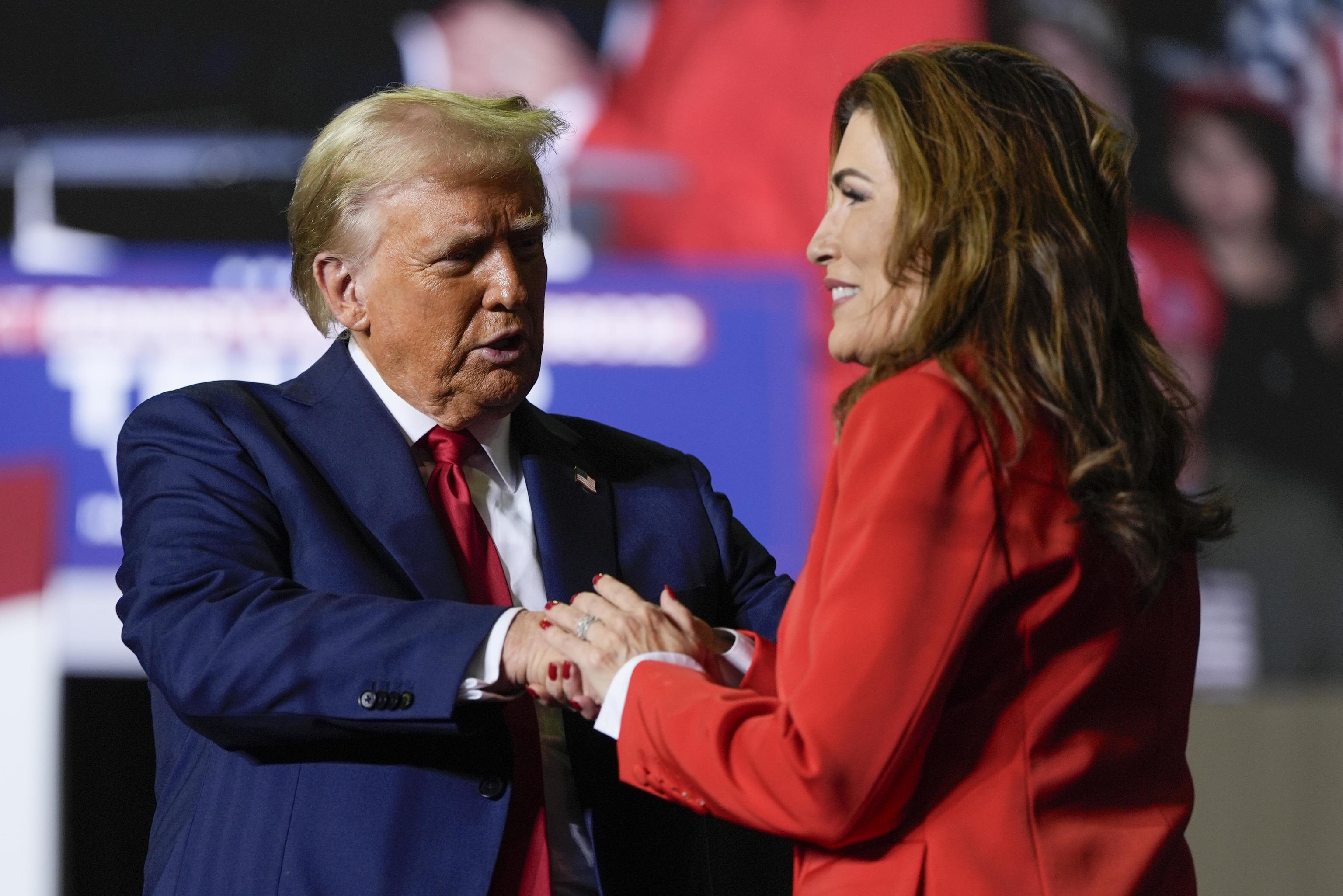Will comedian Killer Tony's monologue at Donald Trump's rally on Sunday in New York, where he said that Puerto Rico is "an island of garbage floating in the ocean," have an impact on the election campaign?
Jenny, a Puerto Rican who works as a school bus driver in the city of Allentown, which is the center of an urban area of almost 300,000 people, was not sure last night. "In his first term, he went to Puerto Rico and threw rolls of toilet paper at people after a hurricane. Those who had decided to vote for him did not change their minds."
Jenny is a Democrat, and she has already voted. However, her opinion does not seem to be shared by Donald Trump's campaign itself. Volunteers collaborating in the former president's electoral effort to return to the White House handed out at least two dozen banners at Trump's rally in Allentown with the words "Boricuas love Donald Trump" in English, using the term Puerto Ricans often refer to themselves with.
It was a grotesque effort, with touches that would have truly left Spanish film director Luis García Berlanga as an apprentice. Among the recipients of the banners was a family of six from former Burma (now Myanmar) who did not speak a word of English and did not know what those words on the signs meant. A Dominican woman also proudly carried the sign, declaring that Puerto Ricans love Trump. Three young people who did not speak a word of Spanish also had theirs. And finally, after some effort, this journalist found a Puerto Rican with a banner.
The scene, which seemed like a farce placed, by some script error, in central Pennsylvania, 120 kilometers from New York and 80 from Philadelphia, had, however, a very clear political objective: social media.
Both independent influencers, who have a much larger presence in this campaign than the old-school journalists, and Trump's social media team made sure to reflect - the former unintentionally; the latter, knowing very well what they were doing - on different online platforms the alleged declarations of love for Trump by Puerto Ricans and also by people passing by.
In any case, the former president's followers fulfilled Jessy's prophecy. Killer Tony's insults had nothing to do with Trump, even though they had been celebrated at an event coordinated by the campaign and where there had been absolute control over the messages. No one was going to stop voting for Trump because of that.
In reality, the rally in New York was not particularly virulent. Trump did not call for the death penalty for undocumented immigrants who murder American citizens. Nor did he blame immigrants (often without specifying, referring to illegal ones or in general to all) for the alleged deterioration of Americans' genes, or say that "they contaminate our blood." He also did not promise to jail his own party's former congresswoman Liz Cheney, who is one of the most prominent voices of the internal Republican opposition to Trump.
Calling Hillary Clinton a "daughter of a female dog," saying that Kamala Harris "is possessed by Satan," or that Democratic voters "are degenerates," as other participants declared at the rally, is part of the usual rhetoric at Donald Trump's events.
What was exceptional was the rally in Allentown. It was because something happened that Trump does not like at all: Spanish was spoken. Moreover, the one who spoke was Senator from Florida, Marco Rubio, of Cuban origin, but who has a strong aversion to using the Spanish language. However, it turned out that Rubio speaks Spanish as well as Fidel Castro, although fortunately, his speech was shorter.
Also participating was the Republican senator for Puerto Rico in the shadows, Zoraida Buxo, who said, in English, that "the people [of the island] have great hope placed in Donald Trump." In reality, Puerto Rico is a Democratic territory. That is one of the reasons why Republicans oppose granting it statehood and ending its semi-colonial status, which has plunged it into a perpetual economic crisis and levels of poverty unparalleled in any of the 50 states that make up the US, although similar to those of other regions seeking statehood, such as the Virgin Islands or Guam.
